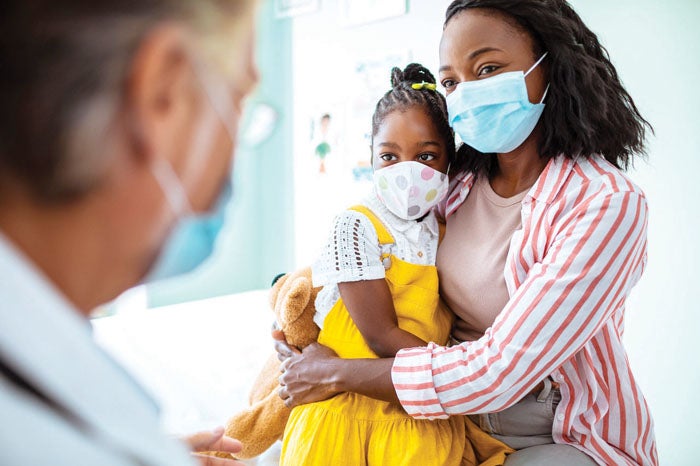Kids, pregnant women and the COVID-19 vaccine — 7 questions answered
Published 12:00 am Thursday, January 21, 2021
|
Getting your Trinity Audio player ready...
|
COVID-19 vaccines currently approved for people 16 and older
By Gina DiPietro
Novant Health
With the COVID-19 vaccines beginning to roll out, many parents are wondering if it’s safe to begin vaccinating their children. It’s not yet known when kids may be able to receive protection against the coronavirus, though Pfizer has begun testing their vaccine in kids ages 12 to 16 and Moderna plans to do the same.
Dr. Lia Erickson, a pediatrician at Novant Health has begun receiving questions from parents. As a pediatrician, Erickson said it’s important the vaccine production companies fully test the vaccine in younger age groups.
“We would love to vaccinate children against COVID-19, as well as adults, but we must ensure they are safe and effective for this age group,” she said.
How does a delay in vaccinating kids affect the need to continue taking COVID-19 precautions?
I think this is the most important message right now. Even with some people getting their vaccines, we cannot adjust the recommendations to wear a mask, social distance and wash our hands frequently. It’s the best way to keep everyone safe.
How can parents talk to children about what the vaccine is?
Kids have a lot more recent experience with vaccines than adults have, because they’re more likely to get vaccines when they go to the doctor. An important thing to tell them is that the reason kids get vaccines is not only to keep them safe from diseases, but also to keep them from spreading diseases to others. Parents can explain that getting the vaccine when it’s available to them is a way to do their part to help keep their friends, family and community safe.
When the vaccine is approved for children, should other vaccines be delayed?
No. Even now, we recommend if somebody has gotten a live vaccine not to get it within two weeks of the COVID-19 vaccine. Live vaccines include measles, mumps, rubella, chickenpox and the nasal flu vaccine. Babies also receive an oral vaccine called rotavirus. Other than that, we recommend children get their regular yearly checkups, and that they receive their vaccines in accordance with the Centers for Disease Control and Prevention schedule, as well as their annual flu shot.
Studies have shown that people with developmental disabilities are more likely to die from COVID-19. Will children with disabilities or developmental delays be prioritized over other children?
The CDC will help direct which children get the vaccine first. We don’t know yet whether they will recommend vaccinating high-risk kids first, or if they’re going to do it based on age.
What about pregnant women or women who are breastfeeding?
We know that pregnant women are at higher risk of complications due to the coronavirus. The American College of Obstetrics and Gynecology recommends the COVID-19 vaccine for pregnant women and women who are breastfeeding. With the way mRNA vaccines work, we don’t anticipate the vaccine would harm a developing baby and it shouldn’t pass into breast milk either.
Our hope is that as the mom makes antibodies, part of that immunity would then pass to the baby and hopefully provide some protection to the baby. But, if a woman is pregnant and has any questions about it, I would recommend that she talk to her doctor.
What is your advice to parents who are wary of the COVID-19 vaccines?
It is important to talk to their health care provider if they have any questions or concerns. People also need to make sure that any information they are getting about the vaccine is from reliable and scientific sources — not social media. The CDC website has some really good information about the vaccine and the technology of mRNA vaccines that I think is really helpful.
Are mRNA vaccines new?
No, they’ve been working on this technology for about 10 years. Initially, they developed it with the hopes that it would be able to be used for cancer treatment. And I’m just so grateful that they’d already been working on this technology so that when we had a novel pandemic caused by a new virus, that they were able to create a vaccine quickly.
The other thing I think is reassuring is that the mRNA component of the vaccine, which are the instructions for your body to make the protein that your body will use to create antibodies, will only be in your body for about two days. So, it’s unlikely that it would cause long-term side effects in anyone.




